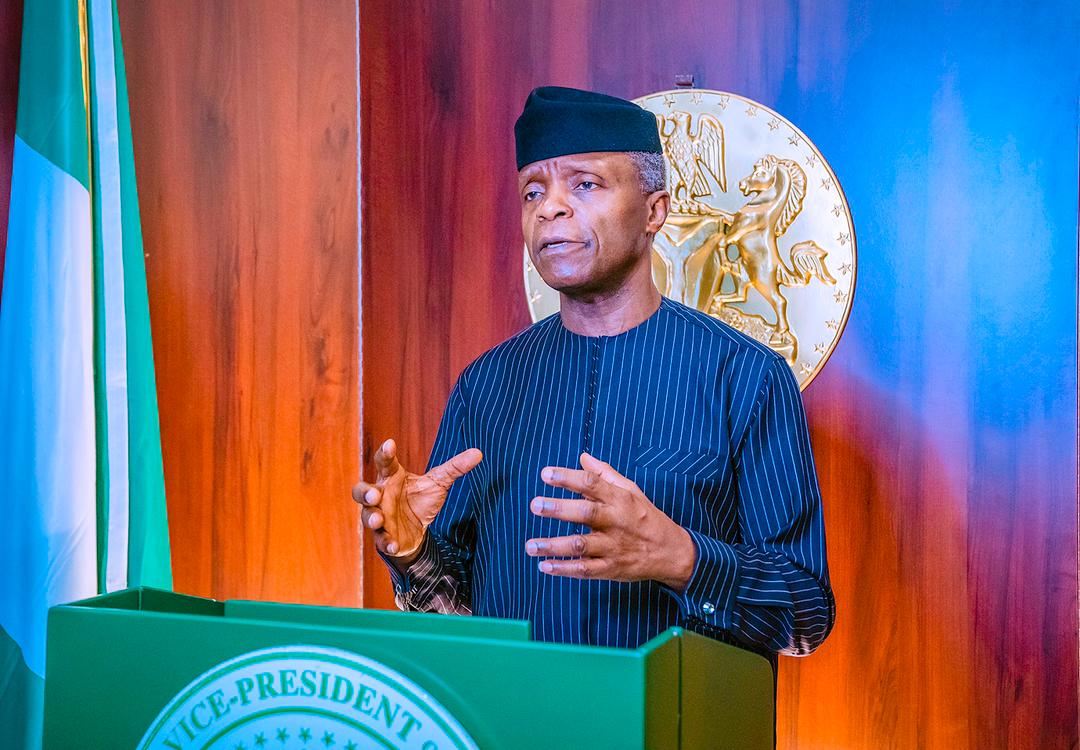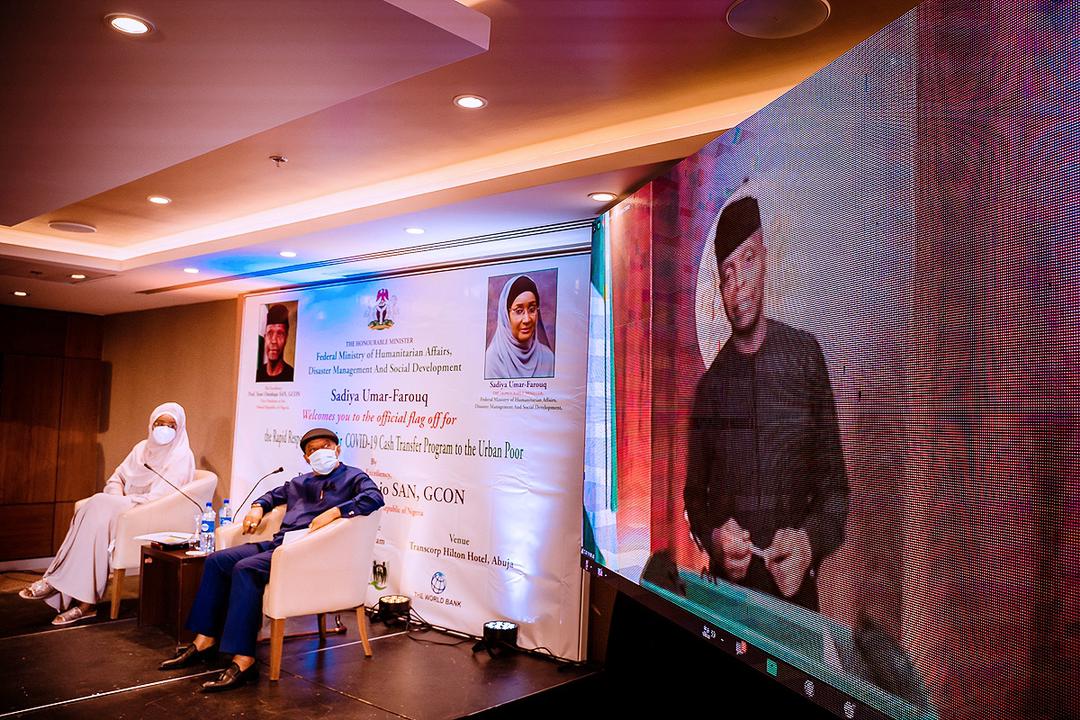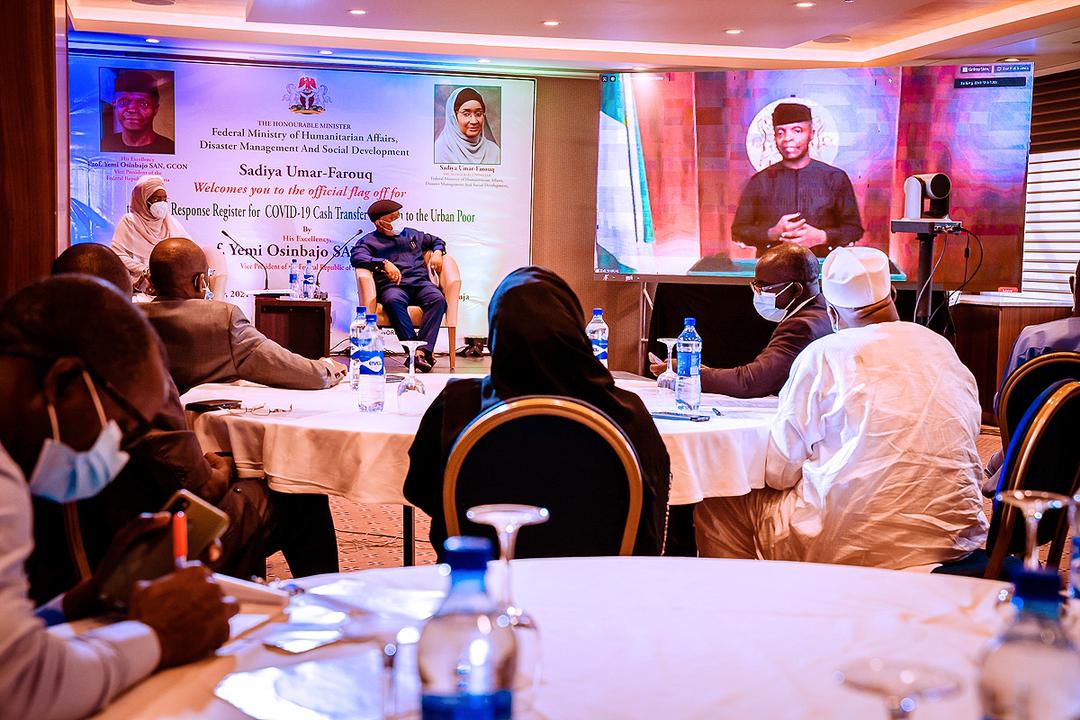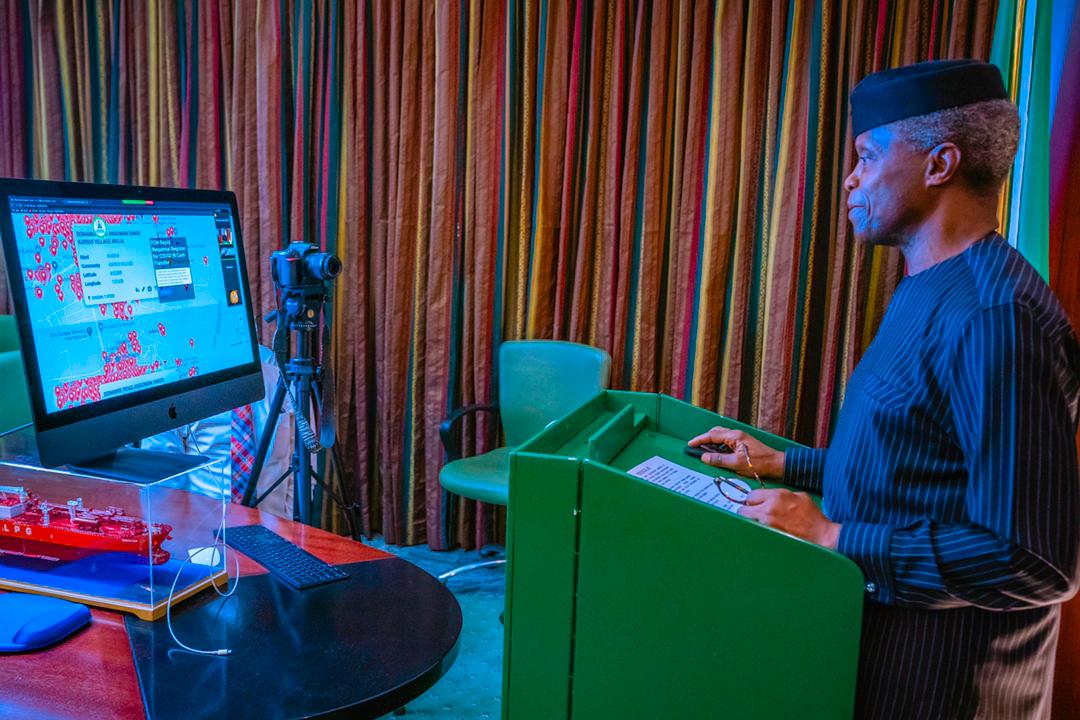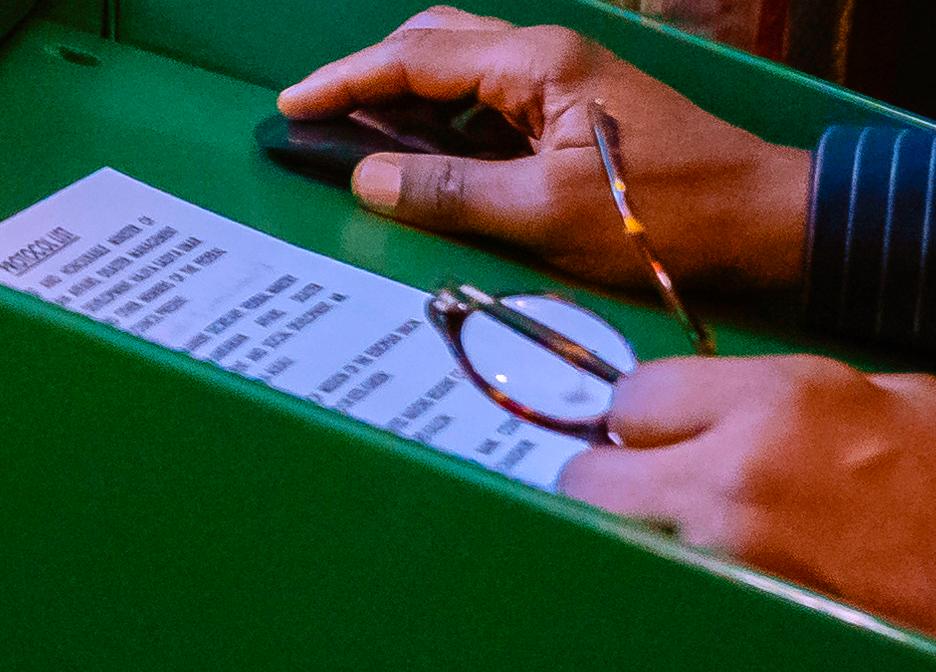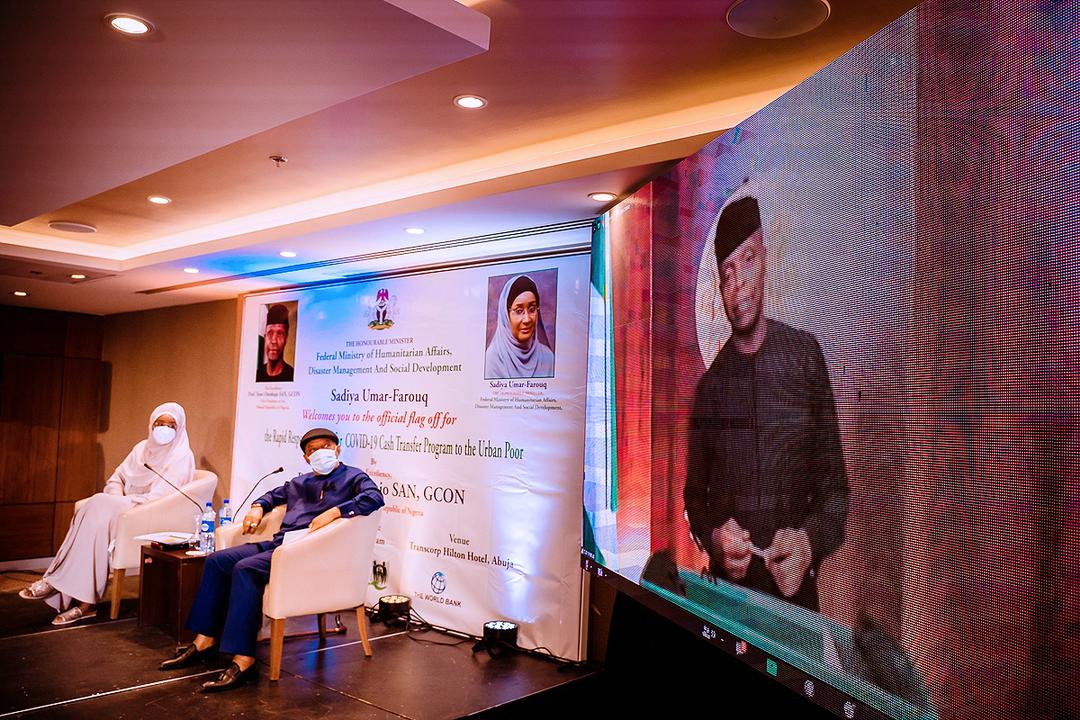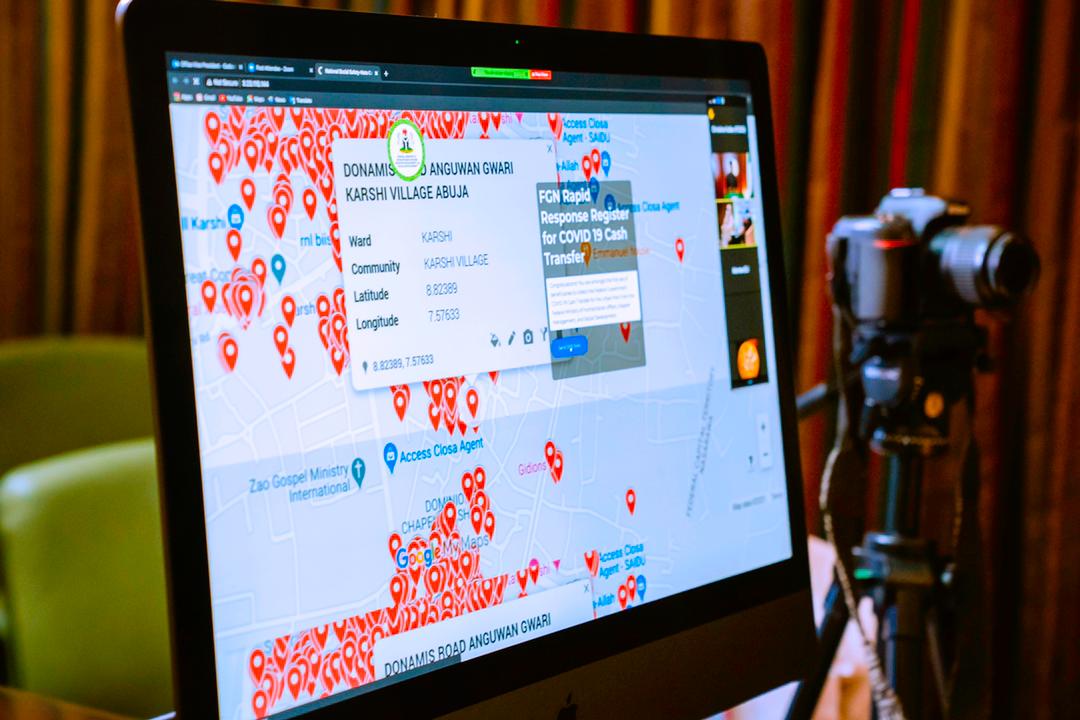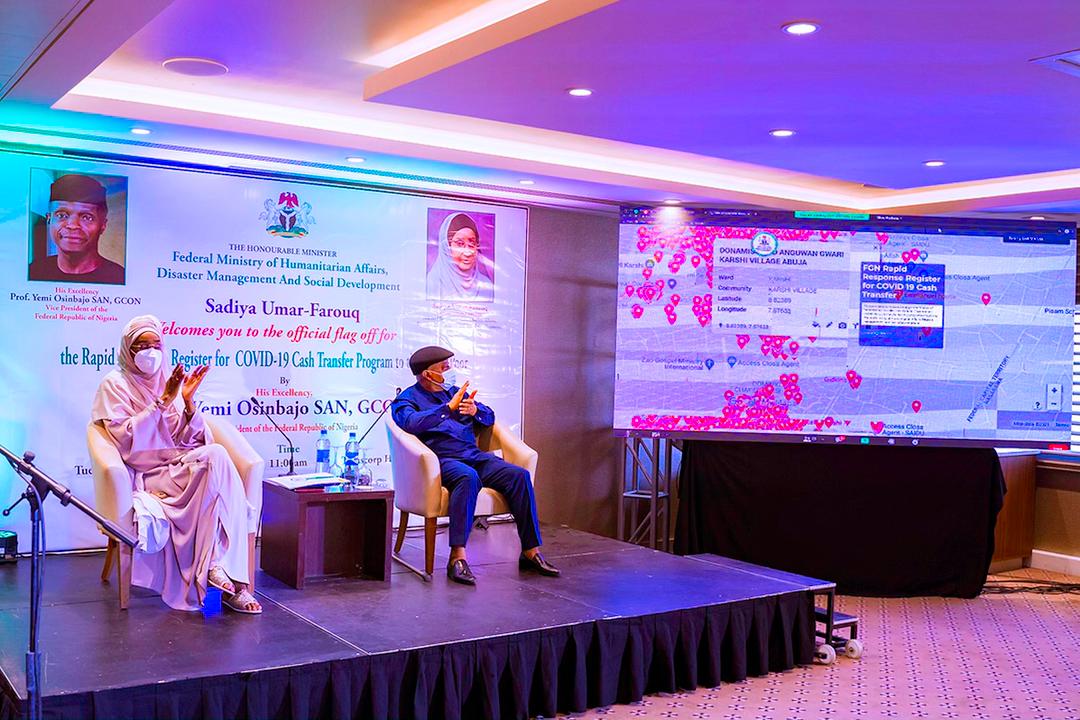Launch Of The Rapid Response Register (RRR) For The Economic Sustainability Plan COVID-19 Cash Transfer
REMARKS BY HIS EXCELLENCY, PROF YEMI OSINBAJO, SAN, GCON, VICE PRESIDENT OF THE FEDERAL REPUBLIC OF NIGERIA, AT THE LAUNCH OF THE RAPID RESPONSE REGISTER (RRR) FOR COVID-19 CASH TRANSFER ON THE 19TH OF JANUARY, 2021
PROTOCOLS
I am very delighted to be part of this epoch-making event, to flag-off the operations of the Federal Government Rapid Response Register (RRR) for the COVID-19 Cash Transfer. This Cash Transfer Project is a national initiative to build a shock responsive framework for capturing and registering the urban poor and vulnerable populations across Nigeria. The new register complements the already existing platforms under the World Bank supported National Social Safety Nets Project (NASSP).
Our Government launched the National Social Protection Policy (NSPP) in 2017 to provide the framework for institutionalizing the work we started since 2016 on reducing extreme poverty in Nigeria, based on our administration’s vision to create a comprehensive social security programme for the poor and vulnerable and thereafter, the pledge to lift 100 million Nigerian’s out of poverty in ten years.
In furtherance of these objectives, the Ministry of Humanitarian Affairs, Disaster Management and Social Development was established in August 2019 to coordinate all humanitarian and social protection activities in Nigeria.
The National Social Protection Policy established the minimum guarantees for social assistance and social security in Nigeria. It also provided the framework for the implementation of Social Investment and Social Safety-net Programmes in the country. Under NASSP, Nigeria has been building a Social Register of its poor and vulnerable population starting from the poorest geographies, which have been largely rural areas.
As of 31st December 2020, we have identified and registered about 24.3million poor and vulnerable individuals into the National Social Register; equivalent to about 5.7million households.
Through this project, we are currently injecting about Ten Billion Naira (N10 Billion) directly into the hands of about Two Million (2 million) poor and vulnerable households every month. This is about the largest evidence-based effort by any administration on poverty reduction and its impact on the lives of the poor is huge; by way of improving the livelihoods of the beneficiaries through enhanced household purchasing power; smoothening consumption; increasing savings and acquisition of household assets, and improving the local economy. There are many more ramifications.
When the COVID-19 pandemic struck in Nigeria in February 2020, those in the National Social Register (an aggregate of all state social registers) of the poor, and the beneficiaries of the national cash transfer programme were largely rural people. Nonetheless, it quickly became obvious that while the COVID-19 containment action was effective in slowing down the spread of the infections, it also impacted the urban informal workers and dwellers, especially those daily wage earners that could not work due to loss of jobs, business closure or restrictions on movement. So, from this situation emerged a new set of vulnerable groups of people at risk of falling into poverty.
And it was for this category of people, who were not previously captured in the social register, the Ministry of Humanitarian Affairs, working with the NASSP, designed an intervention to rapidly identify, register and provide them with succour, hence, the Rapid Response Register (RRR) was born.
The RRR is designed to focus mainly on the urban poor wards selected using scientifically validated methods of satellite remote sensing technology, machine learning algorithm and big data analysis. This social protection method of targeting is the first strategy to be developed and tested in the Sub-Saharan Africa region and Nigeria will be the first country for its implementation.
With the RRR, which uses a wholly technology-based approach, we are primed to achieve an end-to-end digital foot-print in cash transfers for the urban poor; which also helps us achieve our financial inclusion policy under the Enhancing Financial Innovation and Access programme (EFInA).
I must commend the Hon. Minister of Humanitarian Affairs and her team not only for this innovative effort but for the discipline and resourcefulness that they have brought into the execution of the project to deliver it so promptly and so well.
The groundbreaking success of the RRR now emboldens us to achieve our aspiration of a social security programme for a minimum of twenty million Nigerians in the next two years. This will be the largest of its kind on the continent. This is, at least from the perspective of this tested approach, now well within our reach. The only constrain, of course, is the funding which we must look for because this country deserves a social security scheme that will not merely alleviate poverty but also create wealth for the millions of those who are waiting for this opportunity.
Hon. Minister, distinguished ladies and gentlemen, as a testament to the commitment of the Federal government of Nigeria to creating opportunities for millions of Nigerians to exit poverty with dignity and hope it is now my special pleasure and privilege to flag-off the COVID-19 Cash Transfer Project.
Thank you very much.


